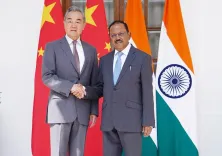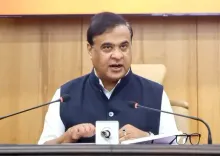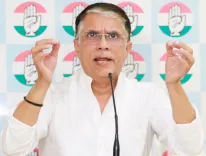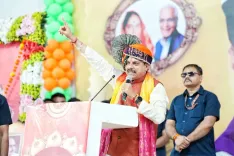Did BJP’s Amit Malviya Just Rebuke Rahul? 'Caste Census Has Been in Motion, It's Not Your Concept'
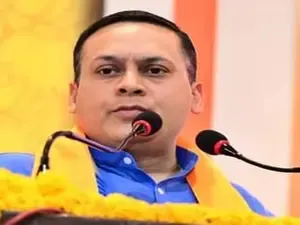
Synopsis
Key Takeaways
- Caste enumeration is now included in the upcoming census.
- Political tensions have risen between Congress and BJP over this decision.
- Rahul Gandhi claims the initiative is a result of their advocacy.
- Amit Malviya rebuts claims, highlighting prior announcements.
- The move has significant implications for social justice and governance.
New Delhi, April 30 (NationPress) The Central government’s decision to incorporate caste enumeration in the forthcoming population census has sparked renewed political tensions, with the Congress and the BJP exchanging sharp critiques regarding ownership and motives. This significant policy shift carries substantial implications for governance and welfare distribution, while simultaneously reigniting ideological clashes between the ruling party and its opposition.
On Thursday, Congress leader Rahul Gandhi expressed his approval of the government's move, framing it as a concession forced by the Opposition's persistent demands. He described the caste census as a “new paradigm of development,” asserting, “It was our vision; we are pleased they have embraced it.”
Gandhi also outlined a three-step strategy that Congress would pursue to advocate for social justice, although specifics of these steps were not disclosed during his speech.
In response, the BJP quickly countered Gandhi’s claims.
Amit Malviya, the head of the BJP's IT Cell, rejected the assertion made by Rahul Gandhi, accusing him of trying to appropriate the narrative.
“Rahul Gandhi must refrain from claiming credit for the government’s decision on the caste census. Union Home Minister Amit Shah indicated on September 18, 2024, that this announcement was imminent,” Malviya stated in a post on X.
He also referred to the UPA government's management of the 2011 Socio-Economic and Caste Census (SECC), which did include caste data but was never published due to what the previous government called data inconsistencies and classification challenges.
“In 2011, the Congress-led UPA government initiated the Socio-Economic and Caste Census, which included a caste component—the first such effort since 1931. However, the Congress failed to disclose the caste data, citing inconsistencies and classification issues. It is the BJP and Prime Minister Narendra Modi who genuinely champion social justice, and this initiative is a positive step forward,” Malviya asserted.
The political tussle follows the Cabinet Committee on Political Affairs (CCPA)’s decision on Wednesday to endorse the inclusion of caste enumeration in the upcoming census. Union Minister Ashwini Vaishnaw announced this decision, emphasizing that the Census is a Union subject as per the Constitution and must be conducted by the Centre.
The discourse surrounding caste-based enumeration has long been a delicate political topic in India. Advocates argue that it is crucial for ensuring equitable policy development and targeted welfare initiatives, while detractors frequently voice concerns about the politicization of caste and the risk of social fragmentation.
By including caste data in the national census, the Modi administration has undoubtedly made a strategic policy shift that is likely to affect electoral strategies, inter-party alliances, and the future of affirmative action programs.

